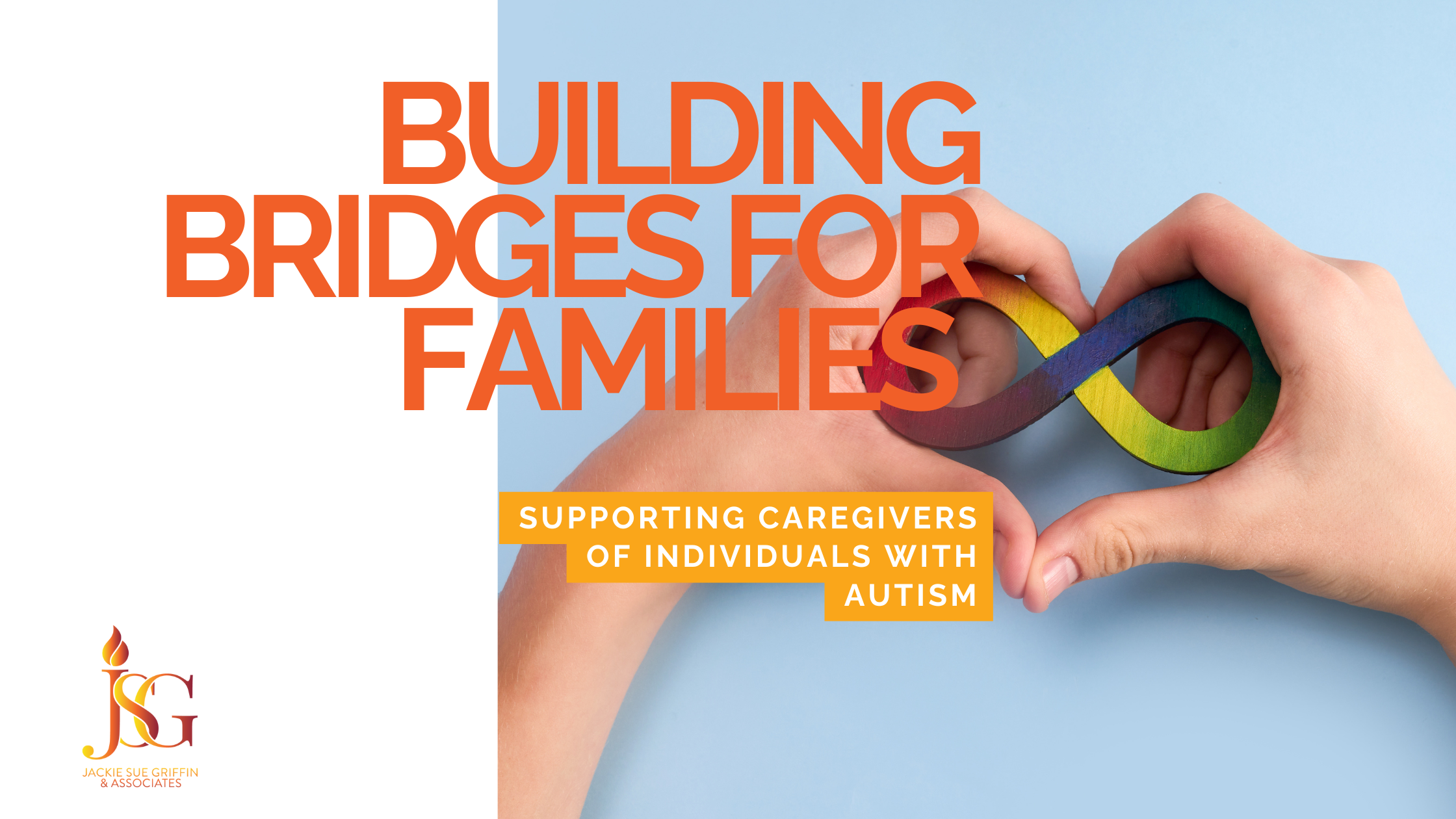
09 Apr Building Bridges for Families: Supporting Caregivers of Individuals with Autism
April is Autism Awareness Month and as we look for ways to support individuals with autism, it’s important to widen the lens and recognize the people standing beside them every day—caregivers. Whether it’s a parent, sibling, grandparent, or guardian, these caregivers often serve as advocates, coordinators, comforters, and problem-solvers all rolled into one. Their dedication is unwavering, but the weight they carry can be incredibly heavy.
Caring for someone with autism often means navigating a maze of appointments, therapies, school meetings, insurance claims, and daily routines that may look very different from those of other families. It’s not uncommon for caregivers to feel overwhelmed, isolated, or unsure of where to turn for help. The emotional, physical, and financial toll can be substantial—and yet many continue on with little formal support.
That’s where nonprofits and community organizations have an opportunity to step in and make a meaningful difference. By supporting caregivers, we not only help the individual with autism thrive, but we also strengthen the entire family unit. When caregivers feel supported, their ability to advocate and care for their loved ones grows exponentially.
Empowering Through Education
One of the most impactful things organizations can do is provide access to reliable, relevant information. When caregivers understand more about autism spectrum disorder and the strategies that can support their loved ones’ development, they feel more confident and less alone. Educational workshops, resource guides, and expert-led discussions can go a long way in equipping families to handle what comes their way.
Creating a Sense of Community
But information alone isn’t enough. What many caregivers crave just as much—if not more—is connection. The journey can feel isolating, especially for those in communities where autism is still misunderstood or stigmatized. Creating opportunities for caregivers to share their experiences, swap advice, and simply vent without judgment can be incredibly healing. Whether it’s a monthly support group, a private online community, or informal meetups at the park, these shared spaces build trust, friendship, and resilience.
Addressing Caregiver Burnout
Caregivers often push themselves to the brink, ignoring their own needs in the process. That’s why respite care is so critical. Even a few hours of reliable, trusted help can provide a caregiver with the time to rest, attend to their health, or reconnect with other parts of their life. Nonprofits can play a vital role by advocating for more respite funding, partnering with local agencies, or organizing volunteer-driven programs to offer short breaks for families who need them most.
Prioritizing Emotional Well-being
Mental and emotional well-being is another area that can’t be overlooked. It’s easy for caregivers to feel like they always have to be “on,” and that constant vigilance can take a toll. Partnering with mental health professionals to provide counseling or support groups, even virtually, can offer caregivers a much-needed outlet. Encouraging self-care—whether through yoga classes, meditation workshops, or simple wellness tips—sends a powerful message: You matter too.
And sometimes, what caregivers need most is recognition. A simple thank you, a spotlight story, or a caregiver appreciation event can remind them that their hard work is seen and valued. It might seem small, but these gestures can have a lasting impact.
At the end of the day, supporting caregivers of individuals with autism isn’t a luxury—it’s a necessity. Their strength fuels the progress of those they care for. By building bridges of support, we ensure that caregivers don’t have to walk this journey alone.
For nonprofits looking to deepen their impact, investing in caregiver support is a powerful place to start. It strengthens families, builds community resilience, and creates a more inclusive world—one where everyone, including those behind the scenes, gets the care and respect they deserve.

No Comments